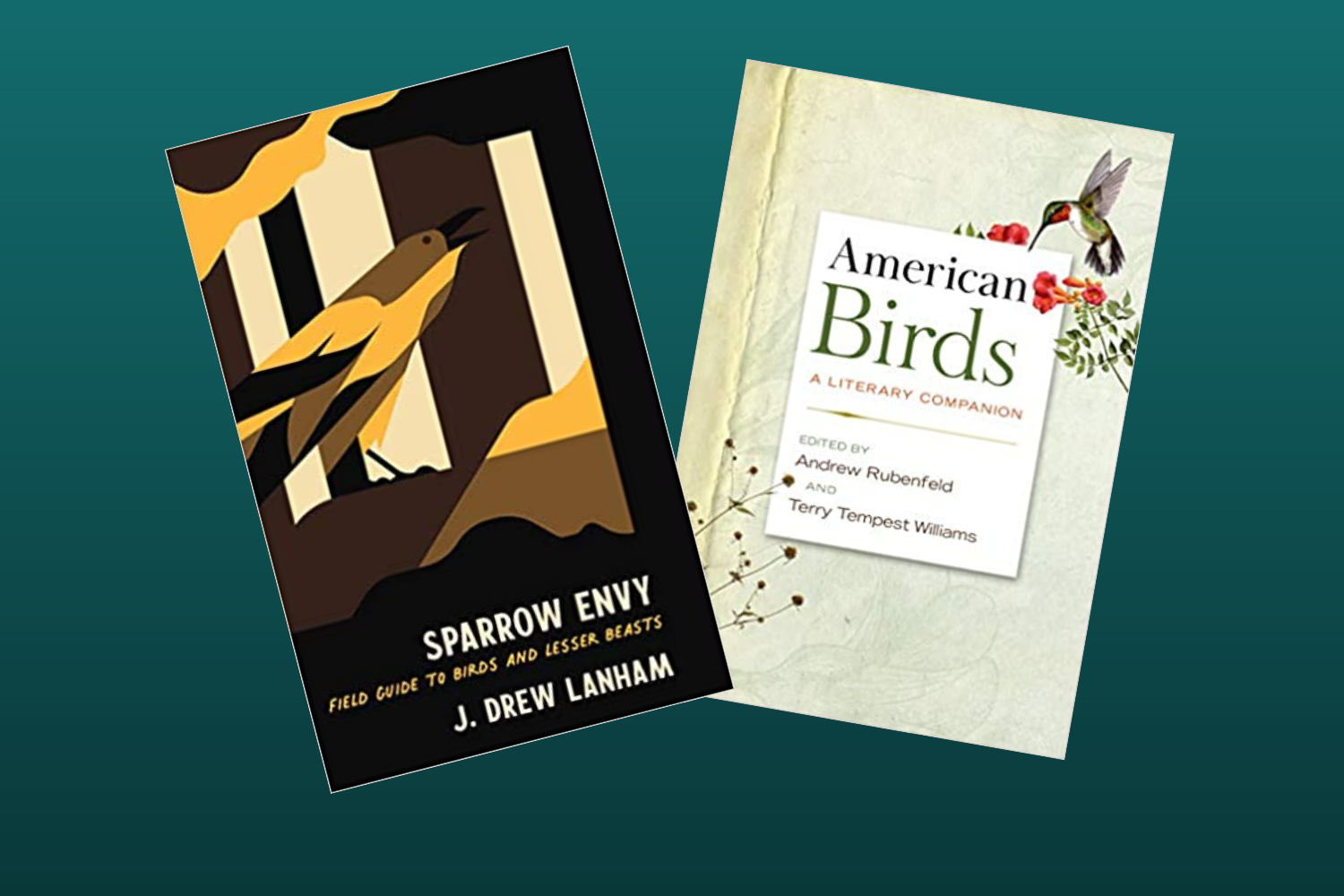CAS Board member reviews Sparrow Envy, Field Guide to Birds and Lesser Beasts, by J. Drew Lanham, Hub City Press, 2021.
Already a fan of J. Drew Lanham, I’m now pleased to recommend Sparrow Envy, poems about birds.
Lanham delights in the wonder of birds, as might be expected from an ornithologist poet. From “Wren R.E.M”:
reality is the wren that wakes to each sun’s rising
with only the moment before it
no plans to skulk
or explore the next darkest crevice or crack
it sings heart-full to the limits of the bounds it knows-
Other poems are in a long tradition of human/nature interaction and emotion. Delight rises above the trials of birds surviving in a human world in “Home From Guatemala (No Walls Here)”:
I forgot all the imperfections when the wood
thrush returned and the notes drifted
through me
it slung its song straight into my heart...
And as expected from an outspoken Black ornithologist, history and race are never far from view, to be read between the lines, perhaps, in poems like “No Murder of Crows”:
a congregation I refused to call a murder
because profiling ain’t what I do:
besides,
they was just flyin’ by.
No cause to criminalize the corvid kind.
or direct as in “Octoroon Warbler” on discarding the names of people attached to birds:
Thus I proclaim on this very day,
whenever this ruling shall be read on whatever future date,
that we remember the identity of the birds for what they are
Audubon gets special attention in this poem; Lanham proposes the Audubon “race” of yellow-rumped
warbler be called “octoroon warbler”:
Let his name now be struck.
For malfeasance to humanity
A coda of sorts at the end of the book includes a slightly updated version of Lanham’s essential Nine Rules for the Black Birder, along with How to Adore Birds, and Group Think: New Names for Plural Birds, such as “a tide of shorebirds”, “a wandering of warblers”, and “a privilege of all birds white – though it’s not their fault.”
Sparrow Envy is a very personal work. From the title poem:
Were I the sparrow
I would find haven
in the thorniest thickets -
I would find great joy
in the mist-sodden morning
Good words to consider.
Lanham will not be found in American Birds, A Literary Companion, an anthology of prose and poems about birds. Arranged chronologically are well known authors like Thoreau, Burroughs, Muir, and Leopold, and poems by contemporary favorites of mine, Mary Oliver, Wendell Berry and W. S. Merwin. I was glad to find here as well writers I did not know and works by others I’m somewhat familiar with but hadn’t read their work about birds.
Among poems from well known writers I had not read (coincidentally side by side by virtue of being from 1965) are by Elizabeth Bishop and Randall Jarrell. From Bishop’s “Sandpiper”:
The world is a mist. The world is uniquely
minute and vast and clear. The tide
is higher or lower. He couldn't tell you which.
His beak is focussed; he is preoccupied,
looking for something, something, something.
Poor bird, he is obsessed!
and from “The Mockingbird” by Jarrell:
All day the mockingbird has owned the yard.
As light first woke the world, the sparrows trooped
Onto the seedy lawn: the mockingbird
Chased them off shrieking. Hour by hour, fighting hard
To make the world his own, he swooped
On thrushes, thrashers, jays, and chickadees -
At noon he drove away a big black cat.
Prose selections also range from familiar to less well known. The two most recent entries bring quite different perspectives, from Noah Strycker on some perils of chasing rarities, and Rick Bass on birding while growing old, Answering the call (2013):
There is a war and all hearts are tempted to grow numb, to withdraw and tuck in as if about to roost for the long night. We must not allow this to happen. We must burn, we must travel on, with morning’s fire in our hearts and beauty everywhere we turn, amidst a great burning.
Opening the collection are Three American Indian Songs About Birds, taken from early collections. From there it will take few fingers to count writers I can identify as non-white. Women fare a little better, meriting about a quarter of the entries. I liked the book, but would have it would have been good to see a more inclusive selection.
Which sent me back to an earlier anthology, Black Nature, Four Centuries of African American Nature Poetry (Camille Dungy, ed., The University of Georgia Press, 2009). As a counter to conventional anthologies of privilege, editor and poet Camille Dungy notes that these poems “defy the pastoral conventions of Western poetry...”, that we should “...accept alternative modes of description.”
To move conversations around race and privilege forward, “...we must change the parameters of the conversation.” As difficult as it is for all of us, we must get out of our comfort zones.
In fear of taxing the patience of readers, I will follow soon with more on this book.
For now, read. Read especially outside your comfort zone.
Please send comments and questions to johnelliott4@gmail.com

